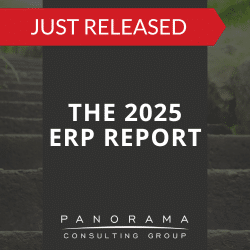Keeping up with all the latest HR technology trends can be a full-time job. Still, it’s well worth your time because understanding what’s out there is the first step toward making an informed software selection.
Today, we’re looking at the latest trends in this space and sharing how companies can overcome common implementation challenges.
5 HR Technology Trends
1. Collaborative Hybrid Work Models
The future of human resources technology is collaborative.
While the year 2020 might have shifted workplaces to a fully virtual model, today’s businesses are more hybrid in nature. Regardless of your setup, we recommend looking for human resources tools that are designed to be accessible from anywhere, at any time.
2. Generative AI
In human resources, generative AI can help organizations perform tasks that were once mostly manual, including:
- Writing job requirements
- Personalizing candidate communications
- Onboarding new employees
- Pairing employees with mentors and role models
- Supporting (not replacing) performance reviews
While generative AI might not ever be a viable option for automating all HR activities, it can make conventional content creation and outreach much easier.
Software Selection & Process Improvement Case Study
In helping the client get its project back on track, one of our primary focus areas was decreasing their customization needs by improving their processes to align with the system's best practices.
3. Emphasis on Soft Skills
In a technological world that sometimes feels impersonable, leadership teams must be more “human” than ever. Today’s HR professional must not only know how to lead effectively but know how to relate to their employees.
To get there, companies are investing in leadership training specifically for HR leaders. Some of the skills they’re emphasizing include:
- Communication
- Empathy
- Authenticity
- Adaptability
Tomorrow’s HR teams will be more relatable and approachable as they focus on encouraging feedback and giving meaningful recognition.
4. Prioritizing Change Management
No one enjoys being blindsided by new initiatives.
Before selecting or implementing any new software, it’s critical to prepare your employees by prioritizing organizational change management (OCM). The same goes for any type of system that will alter your company’s HR processes. This includes HRIS systems, HCM system, ERP systems, and more.
Change management isn’t an overnight process. It requires companies to re-strategize their approach to change, especially if they have downplayed OCM in the past.
A few ways to make the shift more seamless include:
- Integrating OCM into the company culture
- Leveraging managers and early adopters as visible change agents
- Explaining how the new solution will benefit employees
- Being open to questions and concerns
5. Embracing the Metaverse
Especially as more employees work in a hybrid setup, virtual reality environments are piquing the interest of human resources leaders.
The metaverse is still in its early stages, but companies are already taking advantage of immersive workspaces that allow teams to collaborate from anywhere in the world. These spaces can be customized to meet business needs, and they allow organizations to work around traditional barriers of time and space.
Overcoming the Challenges of Implementing HR Tech
When companies decide to implement HR technology, not every effort goes smoothly (just ask the software litigation experts who work with our software expert witnesses).
Potential roadblocks include:
- Selecting the wrong HR tools
- Failing to invest in HR tech training
- Skipping or underemphasizing OCM
- Overlooking key compliance standards
- Leaving data unsecured and vulnerable to attack
Data security is a key element to consider, especially if you’re transferring sensitive HR data from one system to another.
Regardless of the challenges you’re facing, working with an ERP consulting company can help you stay on track. This third-party can make sure your project plan includes key milestones for training, compliance checks, and more.
Tech Doesn’t Have to Make HR Impersonable
If they want to remain “people-focused,” HR departments don’t have to avoid technological advancements. Instead, they can embrace the best of both worlds by aligning their tech investments with clearly-defined HR goals and objectives.
As you explore HR technology trends, our enterprise software consultants can help you define your needs, select a solution, and integrate it with your existing systems. Contact us below for a free consultation.













